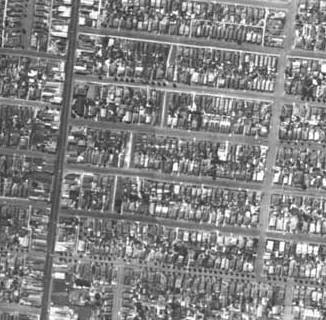| Back to search results » | Back to search page » |
|
RESERVE - THE STEPS
Other NamesJones Reserve , Harry Reserve , McDonald Reserve , Olver Reserve , Roberts Reserve Location1 CLARENDON ST, 26 FLINDERS ST, 12 and 19 GOOCH ST, 2a RALEIGH ST, and 29 ROSSMOYNE ST, THORNBURY, DAREBIN CITY LevelIncluded in Heritage Overlay |
|
Statement of Significance
What is significant? How is it significant? Why is it significant? The mature Canary Island Palms have aesthetic significance as a notable group planting within a parkland in Darebin. (AHC criterion E.1)
'The Steps' Reserves, a series of small reserves running between Flinders and Clarendon Streets, Thornbury, to the east of High Street. Each reserve was set aside in 1909 as what appeared to be drainage reserves along a series of four small laneways running between Clarendon and Mansfield Streets inThornbury. By 1930, these reserves were listed in the Sands & McDougall Directory as Public Reserves and the Canary Island Palms were planted by c.1945. In the tradition of Northcote Council of naming their parks in honour of Councillors, particularly Mayors, Olver Reserve was named after William Olver, Mayor of Northcote in 1931-32. The following elements contribute to the significance of the place:
- the land forming the reserves
- the pedestrian thoroughfare from Flinders to Clarendon Streets
- the mature Canary Island Palms within Jones, Olver, and Roberts Reserves; and
- remant early landscaping materials including lava rock edging
Other street furniture, landscaping, paths, fencing, etc are not significant
The Steps Reserves between Flinders and Clarendon Streets, Thornbury are of local historic and aesthetic significance to Darebin City.
Historically, 'The Steps' Reserves are significant for the evidence they provide of Northcote Council's objectives arising out of a 1906 resolution to 'secure such places in the interests of the health and recreation of present and future Northcote citizens', which they did between 1907 and 1933. While initially set aside as drainage reserves, a number of which were acquired by Northcote Council in the 1920s and 30s, they were listed as public reserves by 1930. (AHC criterion A.4)
Group
Parks, Gardens and Trees
Category
Urban Park






